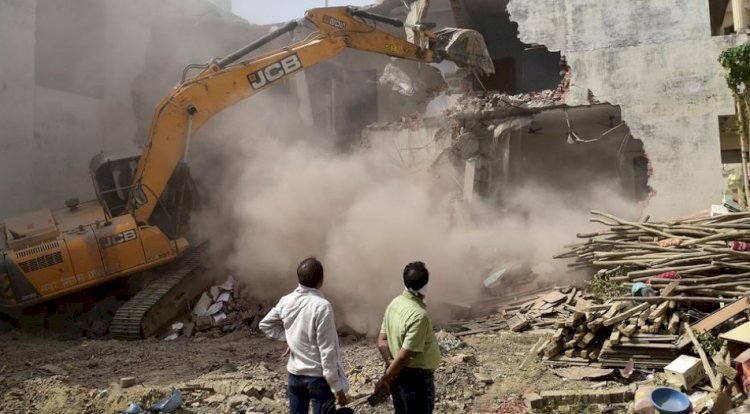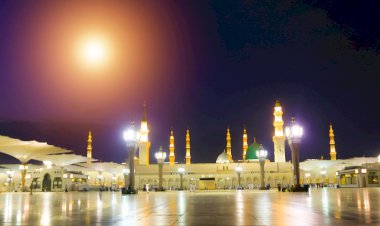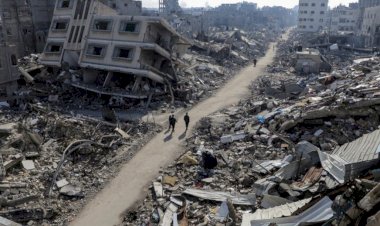Can India’s Supreme Court Ruling Bring an End to Bulldozer Raj Against Muslims?
On September 17, the Supreme Court of India ruled that no properties, including those linked to accused individuals, should be demolished until October 1 without the Court's explicit permission. The bench, comprising Justices B.R. Gavai and K.V. Viswanathan, emphasized that even a single instance of illegal demolition undermines the "ethos" of the Constitution. This order excludes unauthorized structures on public roads, footpaths, railways, or other public places like water bodies. The Court's decision follows earlier statements indicating plans to establish nationwide guidelines on the issue.
Muslims and marginalized groups have often borne the brunt of these demolition drives, as massive yellow machines force their way through brick walls, razing homes and properties with little regard for due process. This has been a common sight in states governed by the BJP and in areas where communal tensions have flared. In many instances, demolitions are carried out as a form of “punishment” following episodes of religious violence or protests by Muslims against discriminatory government policies.
Analysts note that bulldozers have come to symbolize the oppression of Muslims in India, particularly since Uttar Pradesh Chief Minister Yogi Adityanath, known for his anti-Muslim rhetoric, began the policy of destroying properties of those accused of crimes to dispense instant justice. This phenomenon, popular among the Hindu far right, has seen due process become the biggest casualty. Last year, more than 300 Muslim properties were demolished after communal violence on the outskirts of New Delhi. In 2021, a 100-year-old mosque was demolished in Uttar Pradesh’s Barabanki district, and in 2023, a 16th-century mosque was razed in Prayagraj city, also in Uttar Pradesh, under a road widening project.
Between April and June 2022, authorities in five states—Assam, Gujarat, Madhya Pradesh, Uttar Pradesh, and Delhi—carried out demolitions targeting Muslim properties. Prime Minister Narendra Modi’s Bharatiya Janata Party (BJP), which has faced accusations of fostering anti-Muslim rhetoric, rules in four of these five states. Amnesty International documented 63 out of 128 cases of demolitions, with many homes and businesses razed without proper notice or due process.
In a recent incident on June 19, in Lucknow’s Akbarnagar, a massive eviction drive resulted in the demolition of around 1,800 structures, including 1,169 houses and 101 commercial establishments. The BJP government plans to develop this area into the Kukrail Riverfront, transforming it into an ecotourism hub. Many of the affected residents had lived there for decades, with some claiming that they had been in the area even before the development authority was formed.
Additionally, on January 21, a clash between a group of Hindus and local Muslims in Mumbai escalated into violence. Two days later, fifteen shops in the Muslim-majority Haidary Chowk area of Mira Road were demolished by state authorities. This incident followed the inauguration of the Ram temple in Ayodhya, built on the site of the Babri Masjid, which was demolished by a Hindu mob in 1992. Activists reported that no prior notices were issued, contradicting the Bombay High Court's requirement for notice before eviction, with physical eviction only as a last resort.
Responding to these reports, Aakar Patel, chair of Amnesty International India’s board, condemned the impunity with which Indian authorities have enforced their de facto policy of arbitrary and punitive demolitions. Patel criticized these unlawful actions, often carried out without notice or due process, as a significant violation of the rule of law and human rights.
The Supreme Court's recent intervention seeks to address these issues, ensuring that demolitions are carried out only with proper authorization while halting the widespread targeting of marginalized communities across India.
Disclaimer
The views expressed in this article are the author’s own and do not necessarily mirror Islamonweb’s editorial stance.
























Leave A Comment